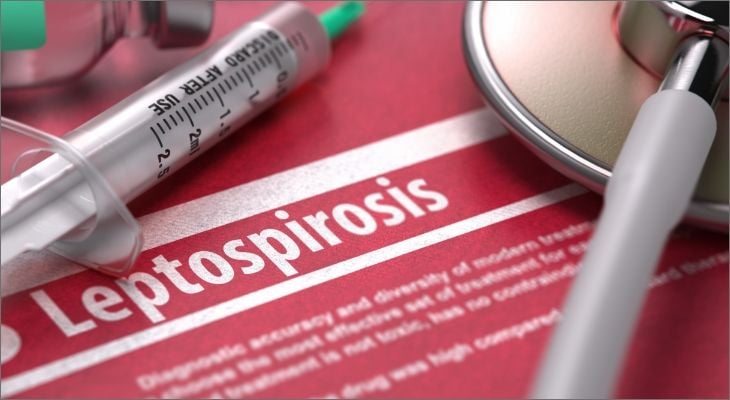Possible vaccine reactions in cats are not toxic, but they can cause mild to severe side effects. Vaccines are important to protect cats from deadly diseases, but they can occasionally lead to adverse reactions.
These reactions can range from mild symptoms like fever, lethargy, and sneezing to more serious issues such as anaphylaxis or vaccine-associated sarcoma. It is essential to monitor your cat after vaccination and seek veterinary assistance if any concerning symptoms arise.
Types Of Vaccine Reactions In Cats
Vaccine reactions in cats can occur, but they are rare and not typically toxic. Some possible reactions include fever, lethargy, and swelling at the injection site. Keep an eye on your cat after vaccinations and contact your vet if you notice any concerning symptoms.
-
Allergic Reactions
Immediate Allergic Reactions: Some cats may experience immediate allergic reactions to vaccines. These reactions can occur within minutes to hours after vaccination and can manifest as facial swelling, difficulty breathing, or anaphylactic shock.
Delayed Allergic Reactions: In rare cases, cats can develop delayed allergic reactions to vaccines. These reactions usually appear within hours to days after vaccination and can include symptoms like fever, lethargy, itching, and diarrhea.
-
Injection Site Reactions
Swelling and Redness: It is common for cats to experience localized swelling and redness at the injection site. This reaction is generally mild and resolves on its own within a few days.
Pain and Discomfort: Cats may also exhibit signs of discomfort or pain at the injection site. This can include tenderness, sensitivity, or reluctance to be touched in that area.

Credit: www.animalhospitalofsouthcarolina.com
Identifying Vaccine Reactions In Cats
Possible Vaccine Reactions in Cats – Are They Toxic?
Vaccinating cats is crucial for their overall health and protection against common diseases. However, it is important for cat owners to be aware of possible vaccine reactions in their feline friends, as some cats may experience adverse effects. By understanding and identifying these reactions, you can take immediate action and ensure your cat’s well-being.
Cats may exhibit various symptoms as a result of vaccine reactions. It is essential to stay vigilant and watch for these signs:
1. Lethargy and Weakness: If your cat appears unusually tired, less active, or weaker than usual, it may be a possible reaction to vaccines.
2. Vomiting and Diarrhea: Frequent vomiting or loose stools can indicate a reaction to vaccinations.
3. Breathing Difficulties: Respiratory issues such as wheezing, coughing, or difficulty in breathing should be taken seriously.
4. Skin Rashes and Hives: Observable skin irritations, rashes, or the sudden appearance of hives can be indicative of vaccine reactions.
If you notice any of these symptoms shortly after your cat receives vaccinations, it is crucial to contact your veterinarian for guidance and evaluation. Remember, prompt action can help alleviate any potential discomfort and ensure your cat’s safety and well-being.
Evaluating The Toxicity Of Vaccine Reactions In Cats
Vaccine reactions in cats are not uncommon, but it’s important to understand the severity levels associated with these reactions. Mild reactions such as swelling at the injection site, fever, or lethargy may occur. While uncomfortable, these reactions are generally not toxic or life-threatening.
Moderate reactions, on the other hand, can have systemic effects on the cat’s body. These reactions may include vomiting, diarrhea, or respiratory distress. It is essential to monitor cats experiencing moderate reactions closely and seek veterinary attention if needed.
Severe reactions like anaphylaxis can be life-threatening for cats. Symptoms may include difficulty breathing, collapse, or seizures. Immediate veterinary intervention is necessary to save the cat’s life.
Vaccine reactions may also have long-term effects and complications. Chronic inflammation might occur, leading to discomfort and ongoing health issues. Additionally, vaccine reactions can sometimes result in immune system disorders, affecting the cat’s overall health.
Minimizing Vaccine Reactions And Ensuring Cat Safety
Discussing Past Reactions with Veterinarian: Before vaccinating your cat, it is crucial to inform your veterinarian about any previous vaccine reactions or side effects. This information will help them tailor the vaccination protocol to minimize the risk of adverse reactions.
Identifying High-Risk Cats: Certain cats may be more prone to vaccine reactions, such as elderly cats, those with chronic illnesses, or a history of previous adverse reactions. Identifying these high-risk cats allows the veterinarian to take necessary precautions during vaccinations.
Tailoring Vaccination Protocols: Based on the cat’s overall health and vaccination history, veterinarians can develop a personalized vaccination protocol. This may involve adjusting the types and dosages of vaccines to reduce the risk of reactions.
Spacing Out Vaccinations: Rather than administering multiple vaccines at once, veterinarians may recommend spacing out vaccinations. This approach helps to minimize the burden on the cat’s immune system and reduces the likelihood of severe reactions.
Monitoring and Reporting Vaccine Reactions: It is essential to closely monitor your cat for any signs of a vaccine reaction following vaccination. Be observant of changes in behavior, appetite, or appearance. If any reactions occur, report them promptly to your veterinarian.
Signs to Monitor After Vaccination: Watch out for common signs of a reaction such as swelling at the injection site, lethargy, vomiting, diarrhea, or difficulty breathing. These signs might indicate a potential vaccine reaction that should be addressed by a veterinary professional.
Contacting Veterinarian in Case of Reaction: In the event of a vaccine reaction, immediately contact your veterinarian for guidance. They will provide appropriate instructions and assistance to manage the reaction and ensure your cat’s safety and well-being.
Conclusion
To conclude, while vaccines play a vital role in protecting our feline friends from various diseases, it’s essential to be aware of possible reactions. Although rare, some cats may experience mild to severe reactions to vaccines. Keeping a close eye on your cat after vaccination and promptly reporting any concerning symptoms to your veterinarian is crucial.
Ultimately, by balancing the risks and benefits, we ensure the well-being of our beloved cats.


